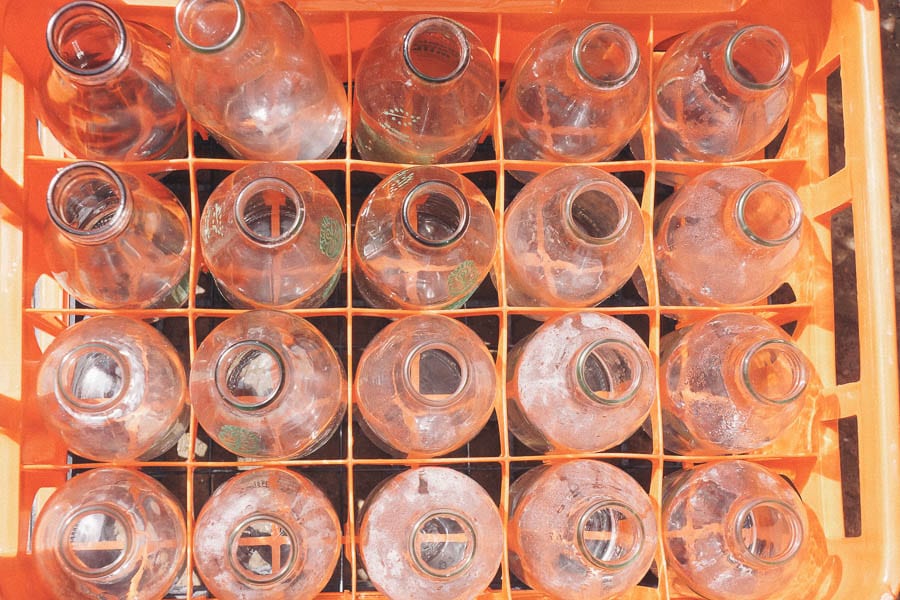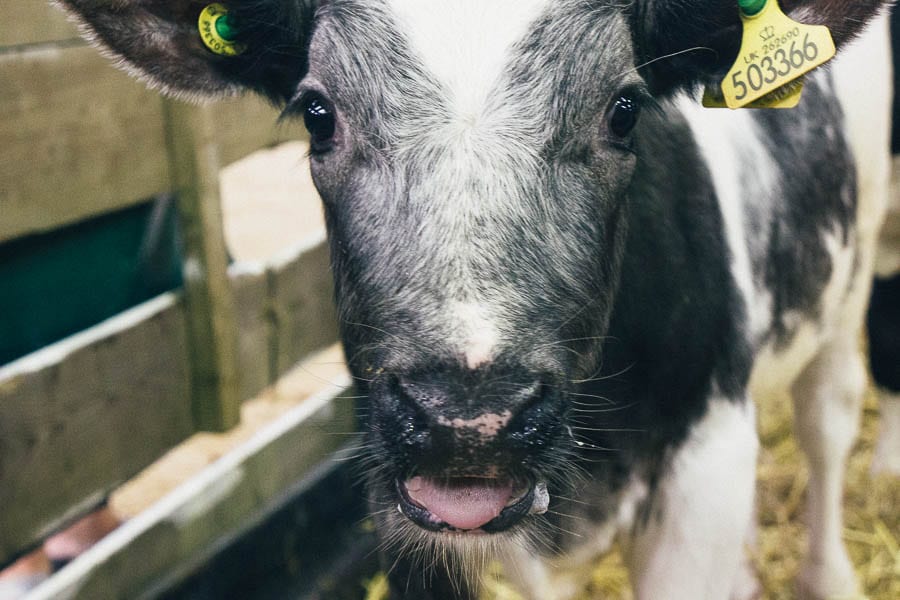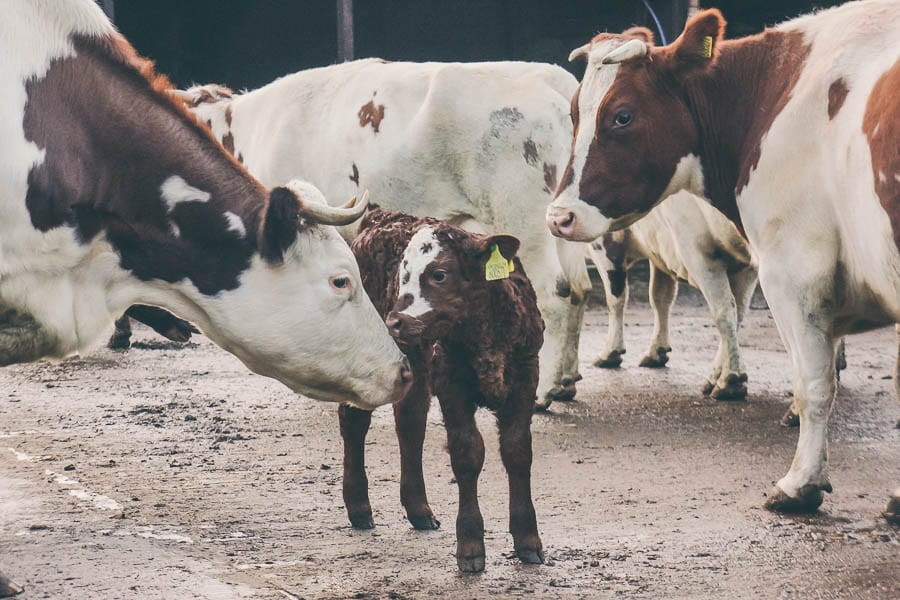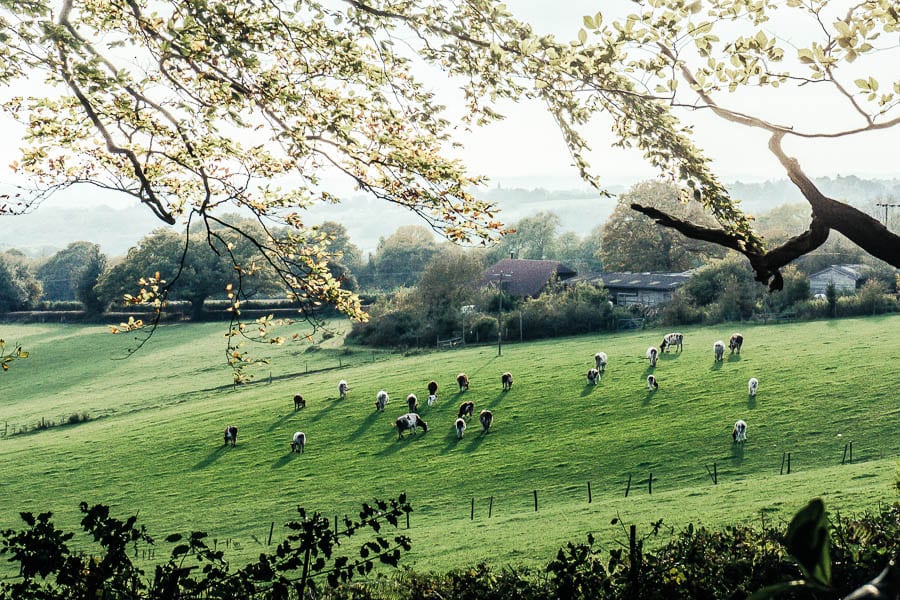 I remember the scramble at school on who managed to get the milk first. The best part was the creamy top in the bottle. I was at boarding school in Dorset where fresh local milk was delivered daily. In London the milk float used to deliver bottles every day at our home. Over 30 years ago more than 85% of milk was delivered to British doorsteps. Now milk is cheap and mostly sold in plastic bottles at supermarkets.
I remember the scramble at school on who managed to get the milk first. The best part was the creamy top in the bottle. I was at boarding school in Dorset where fresh local milk was delivered daily. In London the milk float used to deliver bottles every day at our home. Over 30 years ago more than 85% of milk was delivered to British doorsteps. Now milk is cheap and mostly sold in plastic bottles at supermarkets.
Recently we met a farmer who told us that after 30 years he could no longer afford to maintain his small dairy herd. There are now less than 10,000 dairy farms in UK compared to over 25,000 fifteen years ago (AHDB).

Calf at South England Show
I’ve written before about how too many dairy cows never see daylight. They live indoors all their life. James Rebanks wrote an article called Graze Elegy in a Sunday Times magazine this past weekend:
“Although some of the best megadairy farms look after their cows well, vast herds have to live indoors as it becomes impractical to walk 1,000 cows down a lane into a field…Next time you pick up four pints for 89p, pause for a moment and ask yourself how come it is so cheap when it costs more than that to produce.”
I pity these animals that provide us with nourishing milk no longer living in small social herds together. I lament a future where we no longer see cows grazing in the fields. I hope pastoral scenes of cows grazing will not one day only be seen in old photographs.

Calf and dairy cows at Plawhatch Farm
I regularly buy my milk from a local farm shop called Plawhatch Farm. It’s raw milk. The old-fashioned kind with cream at the top. They also reimburse you if you bring back the bottles. In supermarkets I pay extra for our milk and yoghurt – brands such as Yeo Valley – as I want to support a future that still has British family farms, not mega cow milk factories here or abroad. When I see racks of milk in plastic bottles being sold cheaper than water I wonder where does this milk come from?
I often take my children for walks at Plawhatch so they can see cows in the fields. We’ve watched them being milked.
 I want to make sure when my children grow up they have memories of dairy cows in the open.
I want to make sure when my children grow up they have memories of dairy cows in the open.

Hi Kriss,
I’ve just come across your blog and have really enjoyed browsing through it. Your photographs are stunning and I have enjoyed lots of your posts.
We were just having a conversation at home at the weekend about milk, and we all agreed that we would be happy to pay more for real, free range milk. Hopefully the more information that the public receive about this issue the more pressure there will be for things to change. Your post will help contribute to this ?
Thank you Laura. Hopefully the message will eventually spread about the milk we drink.
my memories of the school milk were grabbing a bottle that had been sitting on the radiator pipes all morning to warm the milk
This is such an important message to get across that dairy farmers are being forced out of business because of the supermarkets (and the public) relentlessly demanding cheaper and cheaper milk. It is also a huge issue over here in France too with recent strikes and demonstrations by farmers demanding a fair price for their milk. It will be a sad day when all thr dairy cows are housed inside, both for them and for the countryside which will be devoid of these beautiful creatures. When possible we buy milk directly from the local farmer as we pay more than the milk company does …. but it is not enough for just the odd person to do this and too many farmers are going out of business. Everyone can help by supporting local farmers and lobbying supermarkets to pay a fair price. After all I am sure we could all afford to pay double for a pint of milk without really noticing the difference but that difference could keep a farmer in business and his cows in the fields. Thank you for adding this post to #AnimalTales
I’m so glad (and not surprised) that you feel so strongly about this. To be honest it’s only because of living in the countryside that I became aware of this. I’m hoping that at some point – sooner than later – the message will be spread. Supermarkets got the message about eggs and now all sell mainly free range eggs. I want only free-range grass grazing milk to be sold too!
I hate to think what the figures are like here, and as a vegetarian I really must investigate other options than the supermarket. It’s one of those things that became much harder to work out once we moved here, but that’s really no excuse x
When I was reading up on UK dairy farms I had a look at US statistics and found this “The majority (74%) of U.S. dairy farms have less than 100 cows. Farms with more than 100 cows produce 85% of the milk.” So probably most of the milk in US supermarkets is from superfarms. I remember only buying milk in the Hamptons on which the cartons said they were from small organic farms.
I’m happy to spend a little more on my milk if I know that the cows are allowed to graze outside. I hadn’t read about mega farms until you raised the issue in your previous blog post – so thanks for sharing.
I was rather shocked when I found out. I assumed that cows always were allowed to graze outside!
I wonder what the figures are for France where milk has never been delivered and it’s nothing like as cheap as UK? I’m sure there must be the mega factories too but I’d like to think it’s not as mass produced. Wishful thinking probably. I hate to think of the world we’re creating for future generations where cows live inside not in fields. It’s so wrong.
I so agree. I don’t want to contemplate such as future.
My milk is delivered by doorstep delivery and I hope that by keeping my business out of the hands of the supermarkets, that I am helping support British dairy farmers. It’s a hard life and one that isn’t well rewarded.
Hopefully we’re making a little difference. I really wasn’t aware in the past about the mega dairy farms.